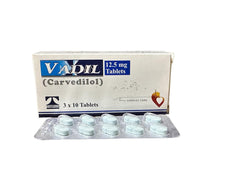

- Choosing a selection results in a full page refresh.
Need Help?
03444440083


Couldn't load pickup availability
standard shipping charges on order is Rs 200
You may return most new, unopened items within 3 days of delivery for a full refund.
You should expect to receive your refund within four weeks of giving your package to the return shipper, however, in many cases you will receive a refund more quickly. This time period includes the transit time for us to receive your return from the shipper (5 to 10 business days), the time it takes us to process your return once we receive it (3 to 5 business days), and the time it takes your bank to process our refund request (5 to 10 business days).
If you need to return an item, simply login to your account, view the order using the "Complete Orders" link under the My Account menu and click the Return Item(s) button. We'll notify you via e-mail of your refund once we've received and processed the returned item.
Lorem ipsum dolor sit amet, consectetur adipiscing elit, sed do eiusmod tempor incididunt ut labore et dolore magna aliqua. Ut enim ad minim veniam, quis nostrud exercitation ullamco laboris nisi ut aliquip ex ea commodo consequat. Duis aute irure dolor in reprehenderit in voluptate velit esse cillum dolore eu fugiat nulla pariatur. Excepteur sint occaecat cupidatat non proident, sunt in culpa qui officia deserunt mollit anim id est laborum.
Vadil 12.5mg Tablet 1 box = 3 Strips.
Specification
Requires Prescription (YES/NO)
Yes
Generics
Carvedilol
Used For
Hypertension
How it works
Carvedilol is a vasodilatory non-selective beta-blocker, which reduces the peripheral vascular resistance by selective alpha 1- receptor blockade and suppresses the renin-angiotensin system through non-selective beta-blockade. Plasma renin activity is reduced and fluid retention is rare.
Usage And Safety
Dosage
Carvedilol
Side Effects
• Bronchitis, pneumonia, upper respiratory tract infection • Infections of the urinary tract • Low numbers of red blood cells • Increase in weight • Elevated cholesterol levels • Loss of control of blood sugar in people with diabetes • Depression, depressed mood • Visual disturbance • Reduced lacrimation, eye irritation • Slow heart rate • Oedema (swelling of the body or parts of the body), fluid overload, increased volume of blood in the body • Dizziness when standing up quickly • Problems with blood circulation (signs include cold hands and feet), hardening of the arteries (atherosclerosis) worsening of symptoms in patients with Raynaud’s disease (fingers or toes turn first bluish, then whitish, and then reddish together with pain) or claudication (pain in the legs which worsens when walking) • Asthma and breathing problems • Fluid accumulation in the lungs • Diarrhoea • Malaise, vomiting, stomach pains, indigestion • Pains (e.g. in the arms and legs) • Acute renal insufficiency and disturbances in renal function in patients with hardening of the arteries and/or impaired renal function • Difficulty in passing urine
Drug Interactions
Diltiazem, verapamil or amiodarone , isosorbide mononitrate or glyceryl trinitrate , Digoxin , doxazosin, reserpine, amlodipine or indoramin , fluoxetine, tricyclic antidepressants, barbiturates, phenothiazines, haloperidol or monoamine oxide inhibitors (MAOIs) , ciclosporin , clonidine or ergotamine , ibuprofen or diclofenac , estrogens , prednisolone , rifampicin or erythromycin , cimetidine , ketoconazole , ephedrine or pseudoephedrine .
Indication
It is used to treat angina (chest pain) and mild, moderate or severe heart failure. It is also used to treat high blood pressure (hypertension).
When not to Use
Do not take : If you are allergic to carvedilol or any of the other ingredients of this medicine ; If you have been told you have very severe heart failure and you have fluid retention (swelling) which is being treated with injections of medicines into your veins (intravenously); If you have liver disease; If you have impaired conduction of the heart (or heart block) .
Precautions
Precaution
Patients with a chronic obstructive pulmonary disease with a tendency towards bronchospasms who are not treated with oral or inhalation medicine should only be given carvedilol if the expected improvement outweighs the possible risk. Patients should be monitored closely in the initial phase, and titration of carvedilol and carvedilol dose should be reduced in case of bronchospasms.
Warnings
Warning 1
Carvedilol may cause bradycardia. If there is a decrease in pulse rate to less than 55 beats per minute, and symptoms associated with bradycardia occur, the carvedilol dose should be reduced.
Warning 2
When carvedilol is used concomitantly with calcium channel blocking agents such as verapamil and diltiazem or with other antiarrhythmics, specifically amiodarone, the patient's blood pressure and ECG have to be monitored. Intravenous co-administration should be avoided .
Warning 3
Care should be taken in administrating carvedilol to patients with a history of serious hypersensitivity reactions and in those undergoing desensitisation therapy as beta-blockers may increase both the sensitivity towards allergens and the seriousness of anaphylactic reactions. Cautions should be exercised when prescribing beta-blockers to patients with psoriasis since skin reactions may be aggravated.
Additional Information
Pregnancy category
Always consult your physician before using any medicine.
Storage (YES/NO)
Store this medicine at room temperature, away from direct light and heat.
Get the latest updates on new products and upcoming sales
Thanks for subscribing!
This email has been registered!

| Product | SKU | Rating | Description | Collection | Availability | Product Type | Other Details |
|---|